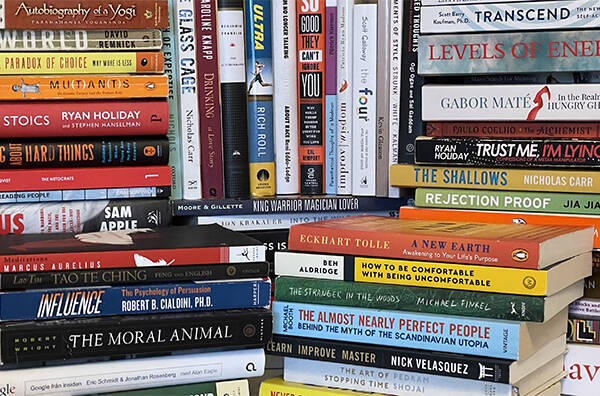American Prometheus by Kai Bird and Martin J. Sherwin is a captivating biography of Robert Oppenheimer, the physicist who led the Manhattan Project, which developed the atomic bomb. The book provides insights into Oppenheimer’s life, his commitment to ethical reflection, intellectual curiosity, interdisciplinary thinking, and humility. In this blog post, we will review American Prometheus, highlighting its key takeaways, and suggest three other biographies that you might enjoy.
Oppenheimers insatiable curiosity
Oppenheimer’s childhood was characterized by a deep curiosity about the world around him and a passion for learning. He was a voracious reader from a young age, and his broad range of knowledge in many disciplines made him stand apart from other physicists. His love for reading also extended to ancient Hindu scripture, The Bhagavad Gita, which had a profound impact on him. Oppenheimer read it in Sanskrit, which allowed him to understand the text’s deeper meaning. This interdisciplinary approach allowed him to synthesize ideas and provide a broader perspective on his work and science.
Similarities between the nuclear and AI arms race
The discovery of nuclear fission made the atomic bomb inevitable. nuclear fission is a process in which the nucleus of an atom is split into two smaller nuclei, releasing a significant amount of energy. When scientist understood that the fission could create a bomb they knew it was only a matter of time before someone would attempt to make it a reality.
Similarly, Deep Learning, which is the use of neural networks to learn and analyze huge sets of data, initiated an “arm race” towards super intelligence. Because we know that the most intelligent being, or in this case machines, with have upper hand in global power struggles.
It’s hard to stop the rapid development of AI. There is so much to be gained by winning, and potentially even more to lose if falling behind. or as Max Tegmark put it in a recent interview: if someone choose to halt development of AI then the competitors will eat their lunch.
Video Review of American Prometheus
Innovation and Risk
Galileo was persecuted for his heliocentric world view because it threatened theological dogma. Alan Turing cracked the Nazi code but was later punished for his sexual orientation and punished with chemical castration. Oppenheimer oversaw the developed of the nuclear bomb which forced the surrender of Japan in World war 2. His services to the war effort was rewarded with a humiliating trial that judged him to be a security risk for the country he loved.
The cases of Galileo, Alan Turing, and J. Robert Oppenheimer remind us that innovation is not always easy or safe, and that those who push the boundaries of knowledge and understanding may face very personal risks and challenges. True innovation takes a lot of courage as you potentially play with fire. Let’s hope the way we treated innovators in the past won’t deter future visionaries in their search for truth.
⚖️ Verdict: American Prometheus
American Prometheus is a well-written and captivating biography that sheds light on the life and work of Robert Oppenheimer. It provides insights into his interdisciplinary approach, insatiable curiosity, and commitment to ethical reflection, intellectual curiosity, and humility. However, the book does not allow us to fully know Oppenheimer. The parts about his scientific work are more interesting than the political accusations that haunted him towards the end of his life. Nevertheless, it is an excellent biography, especially since the birth of atomic weapons reminds us of what we see in the field of AI today.
All in all, American Prometheus is a great read for anyone interested in the history of science, politics, and the intersection of the two.
⭐️ ⭐️ ⭐️ ⭐️ out of 5
Other recommended biographies:
If you enjoyed American Prometheus, you might want to check out these three biographies:
- The Immortal Life of Henrietta Lacks by Rebecca Skloot (Review): This book tells the story of Henrietta Lacks, whose cells were used without her knowledge to develop the polio vaccine, cloning, and other medical innovations.
- Steve Jobs by Walter Isaacson (Review): This biography provides a detailed account of Steve Jobs’ life, from his early years to his death, and his contributions to the development of the Macintosh, iPhone, and other Apple products.
- Gandhi’s Autobiography: The Story of My Experiments With Truth: This autobiography provides insights into the life and struggles of Mahatma Gandhi, who was also inspired by The Bhagavad Gita.
Find more great books to read on the Great Books List
Video Reviews every week on YouTube , and support the BookLab mission on Patreon


